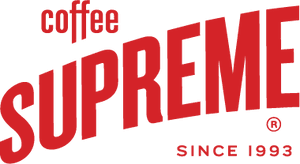Across New Zealand, cafes open every morning to provide hot coffee, shelter from the elements, and a gathering space for communities.
Brodie McDonald’s daughter does weekend shifts at his cafe, Seabreeze. He’s not the only proud parent who is part of the cafe’s community. “We have a generation of local kids working there now,” he says, which happens to be a pretty good business proposition, too.
“It helps keep a community vibe in there – and parents come in to see their kids at work.”
After three years of Covid-induced disruption, the communities that local cafes depend on have, in some places, changed. Financial stress has meant that many hospitality ventures have had to limit their hours or offerings, or close down entirely. But to those in the industry, this has only served to emphasise their value.
“Name a good suburb without a great local,” says Natalie Guest, Auckland manager at Coffee Supreme. “We get so worked up about what kind of oat milk to drink, or edible flowers on the cakes, but really we just need a place where you can meet a friend and know you’ll be looked after.”
For people in the hospitality industry, often operating on incredibly thin margins, lockdowns have been devastating financially. But this has also limited the ability of a cafe to be a third place, a way for people who live in the same community to meet each other, get a glimpse into other people’s lives.
It’s something that Dan Shaw, who runs Good Day cafe in Ōrākei with Jacqui Crichton, has seen. “You have to do good food and coffee, that’s a given, but creating a place that’s friendly and community based – that’s what makes work interesting.” He loves being in his cafe, chatting to his regulars about their families or their golf scores.
What’s better, though, is seeing people make friends at the cafe without his intervention. In his time behind the counter, he’s even noticed a few patterns: “Dog people connect really easily,” he notes. “Or parents – people who have a similar routine. It’s a nice thing to watch.”
For Shaw, creating an enterprise that values and builds connections with his community is part of being an effective operator. “Having relationships, creating that community vibe – it makes the business better,” he says.
And through the trials and tribulations of the pandemic, it’s that community which has helped Good Day weather the storm. “It’s tough margins, but I feel honoured and privileged that we have the support of a community which has meant that we’re relatively unscathed.”
The ritual of coffee, the daily habit of it, helps build these connections too, says McDonald. “People want their morning coffee,” he says. “But to know that you might see someone you know and have a chat – that helps you come back too.” Meeting someone for a cup of coffee can be a little pocket of time before work or a school drop-off, or as a break during the day: a relatively affordable invitation to sit down, linger, and appreciate where you are and who you’re with.
The way that Covid dispersed communities has meant that those that remain are more valued, he thinks. “It’s been a hell of a three years,” he says. “Maybe it’s just me, but I think people are connecting a bit more, letting their guards down a bit.”
For Guest and Coffee Supreme, their main focus has been on supporting the cafes Supreme supplies, including Seabreeze and Good Day, to be that constant for their communities while rules and regulations were changing. “We’ve had to keep our supply chains tight and make sure we can still provide the coffee no matter what,” she says. But the duty is also a pastoral one. “It’s being able to listen to our customers and hear about what’s going well and the things that are really hard at the moment.”
Coffee is a global commodity, emphasised by the map in Guest’s office. She waves her hand over the equator – where the coffee comes from – and then points to New Zealand, a small country in the corner. The coffee might come from far away but it ends up behind cafe counters, given to customers who want the warmth of a conversation as much as they do that first hot sip of a long black.
“We’re hospitable people in Aotearoa,” says Guest. “So I think coffee fits really well here. Cafe culture is casual, but it also makes space for people to literally rub shoulders, be together.”
Having seen the impact Covid has had on these thriving community spaces makes her all the more keen to keep supporting cafes – for the business’s bottom line, but also for the flow on impact cafes have in building a sense of belonging for the people around them. Our culture of cafes can be taken for granted, but it shouldn’t be. “A good cafe is something that should be treasured, and I think it is treasured hugely by regular people.”


